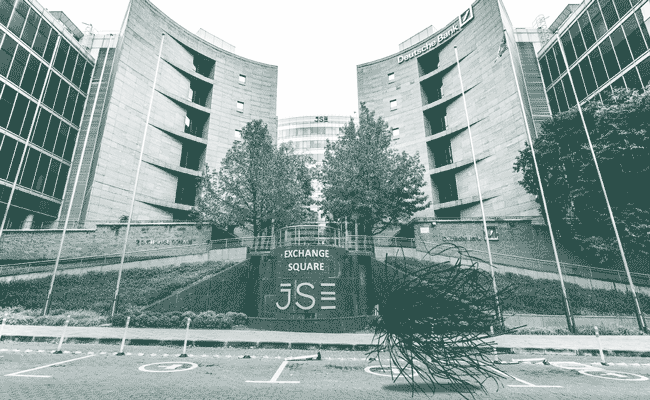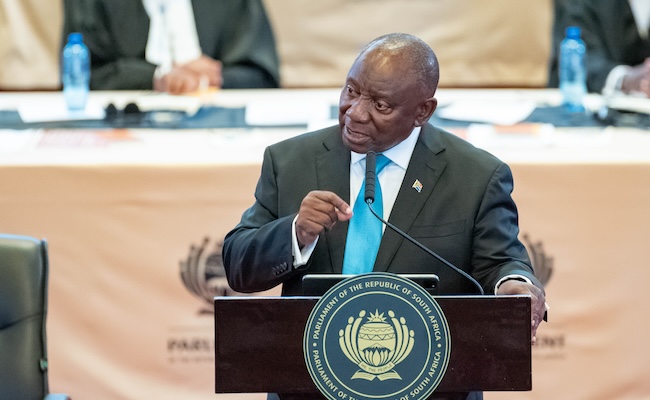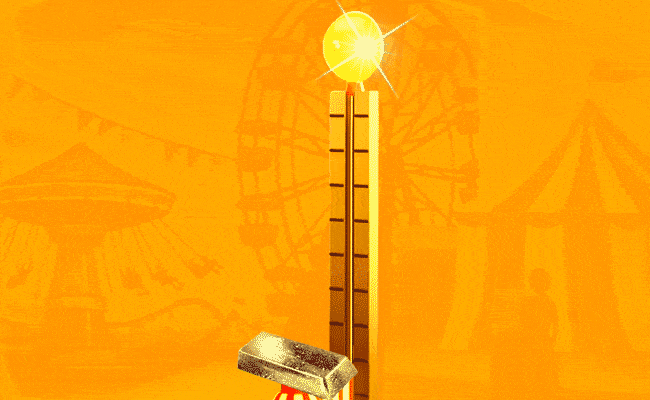I walked past the Bull Run steakhouse, then up the stairs that lead from Maude Street, through Exchange Square to the JSE in Sandton on my way to mark the listing of Shuka Minerals.
A new listing is always a joyous occasion, and the media and PR team at the JSE know how to put on a good show. There’s a countdown to the market opening, a drum is beaten or a kudu horn blown, and there is much ululating. The finger breakfast and barista coffee are top notch.
It was the first real cold snap of the highveld winter in 2025, and the wind was biting. Autumn leaves swirled in the doorway of HSBC’s old building – the acquirer of the venerable SG Frankel Pollak stockbroker from Société Generale back in 1999 – now an empty shell with a “To Let” sign. Opposite stood Deutsche Bank’s twin edifice, the successor to the equally venerable Ivor Jones, Roy & Co stockbroking firm. It too was vacant, its legacy reduced to a matching “To Let” sign.
HSBC has gone while a much-diminished Deutsche Bank lives on elsewhere in Sandton.
That’s when the question struck me: is Joburg even still a centre of high finance?
It is well known that the number of listings has more than halved in two decades. But what has also changed is that fully a quarter of JSE-listed companies are now dual-listed, with primary listings elsewhere – London, Sydney, New York, Amsterdam. Those 25% account for nearly two-thirds of the JSE’s gross market capitalisation. They may still be on our exchange, but they don’t do their “high finance” here.
It also exposes the hollowness behind the JSE’s claim that despite the decline in listings, gross market cap is at its highest ever.
The capital raises, the equity analysis, the M&A advisory work, the corporate lawyering, the structuring, the hedging, the commodity desks – what makes a financial centre a financial centre – now happen elsewhere. Capital raising by dual-listeds continues to be reported as capital raising on the JSE, distorting the stats, even though it’s a new issue of shares by a dual-listed company to an investor in the UK or US without any South African involvement. Likewise foreign M&A and other corporate activity by JSE-listed foreign companies.
The JSE is still a listing venue, but all too often a secondary one, and executing secondary trades only. Sandton may host the electronic ticker tape, but not the underlying corporate transaction.
Not only that, but for the first time in almost three decades, seven of the top 10 stockbrokers are domestic firms with little international presence – if you are a foreigner why trade in rands on the JSE when two-thirds of the tradable stock is available on a more liquid market in dollars, pounds or euros?
And it appears that for the first time in 49 years there will be no Ranking the Analysts Awards in 2025 – something that once determined huge bonuses and battles for talent. I can’t decide whether it’s a comment on the state of the stockbroking industry, the financial press or both.
Shuka Minerals is, however, the exception that proves the rule – a rare debutante, walking proudly into an ever-emptier ballroom.
Inside the JSE building, the mood was upbeat. Shuka’s executives looked proud, as they should be. It takes conviction to list, even if only a secondary listing, in this environment. But outside, the literal and figurative chill was unmistakable. Two major investment banking buildings, once symbols of Joburg’s financial might, now sit vacant. Others have left or downscaled too – Société Generale, BNP Paribas, UBS, Macquarie, Credit Suisse and others.
A city that once had at its heart a globally significant financial market, that is said to have delivered long-term equity returns better than any other, is now watching its influence fade, transaction by transaction, tenant by tenant.
Stop pretending
We can pretend that it doesn’t matter – and nobody is better at that than our major asset managers, second only to the officials in National Treasury, with their “nothing to see here” attitude to the structural problems in South Africa’s saving industry.
Cities and their financial districts, like exchanges, derive energy from high cadence activity – from people doing deals, taking risks, solving problems at close quarters – making and losing money. Investors and speculators. And Joburg seems to have lost that.
The world has taken notice. Joburg’s global financial ranking has fallen sharply – from 69th to 83rd in the global financial centres index. Casablanca, Kigali and Nairobi are all edging up.
The JSE is still Africa’s largest stock exchange. Joburg remains the financial centre of South Africa. But these are now provincial titles, not international ones.
What’s needed now is policy that acknowledges a more modest, regional role for the JSE – and leans into it. That means encouraging and incentivising a new generation of direct retail participants and actively supporting a new generation of medium-sized and smaller companies to list.
Keep the big dual-listed giants, absolutely, but let’s stop pretending the JSE is still a capital markets powerhouse. It’s time to get back to basics: craft policy that incentivises primary market activity and real money liquidity; make it easier to raise and invest capital locally; reward companies for listing and reinvigorate the domestic financial ecosystem – from the bottom up – because a public listing is not just a corporate milestone, it is a public good.
So, while I stood there enjoying excellent coffee, applauding a brave new listing, the first of the year, I couldn’t shake the question: if the finance is being done elsewhere, if the buildings are empty, if the dealmakers are gone – what’s left?
A hope. A memory. And perhaps, a chance – if our policymakers can be persuaded to act – to bring back what was good about it.
Top image: Gallo Images/Sydney Seshibedi; Rawpixel/Currency collage.
Sign up to Currency’s weekly newsletters to receive your own bulletin of weekday news and weekend treats. Register here.














Interesting piece, but not a mention about digital advancements especially DIY retail investors, and of course the rise and rise of ETFs and indexing. And, the rapid growth of crypto, ….and other alternative investment classes (private credit and equity etc). And WFH and zoom …..